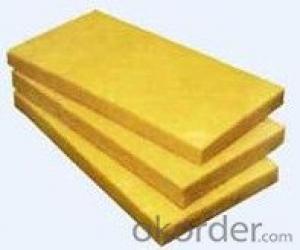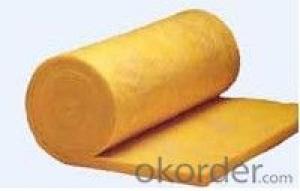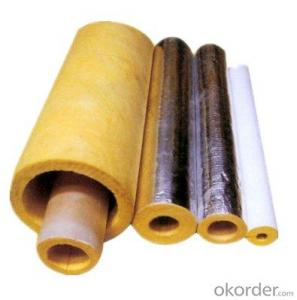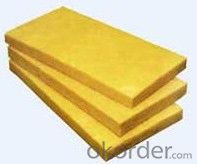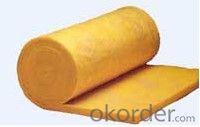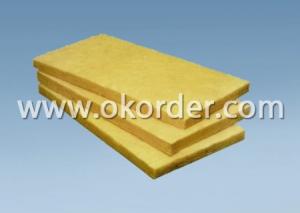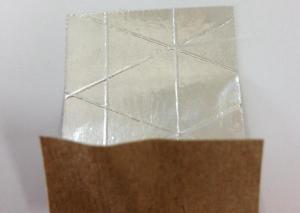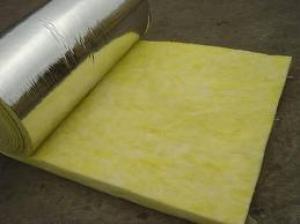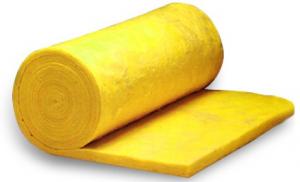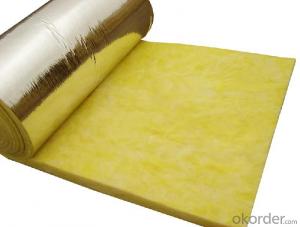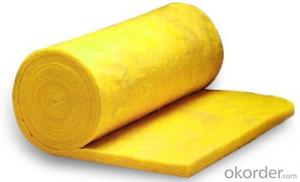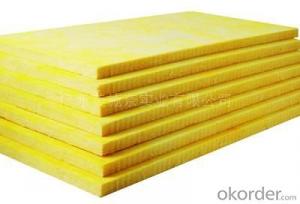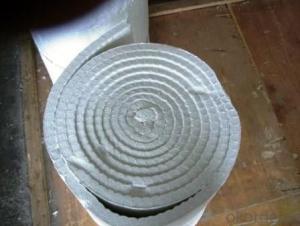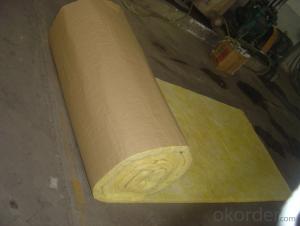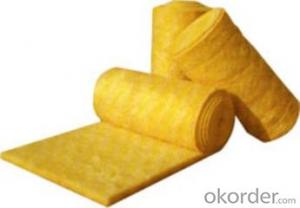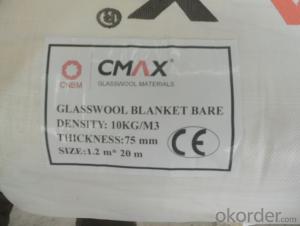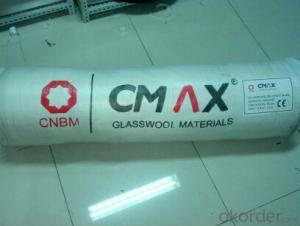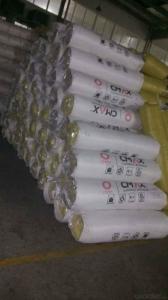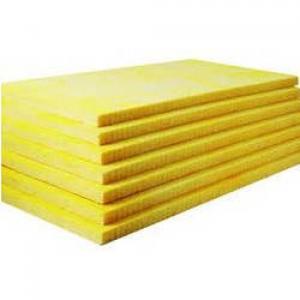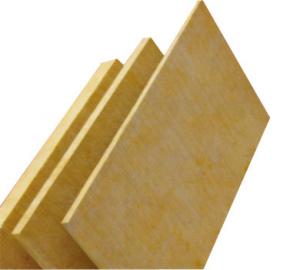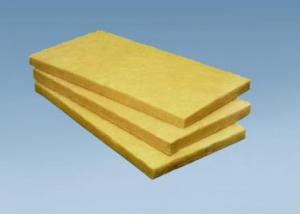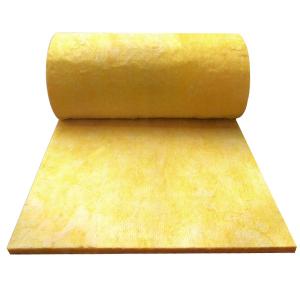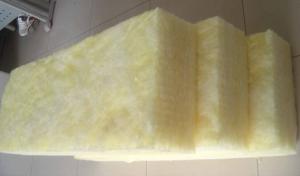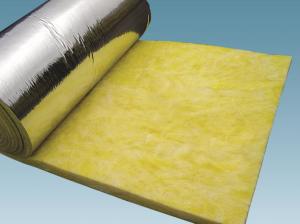Glass Wool Insulation for Roofing and Wall
- Loading Port:
- Tianjin
- Payment Terms:
- TT OR LC
- Min Order Qty:
- 1000 m²
- Supply Capability:
- 10000 m²/month
OKorder Service Pledge
OKorder Financial Service
You Might Also Like
Glass Wool Insulation for Roofing
INTRODUCTION
In the field of insulation materials, weare mainly specializing in Glass wool products, including blankets, boards andpipes. The advantage of this material is numerous: noncombustible, nontoxic,and resistant to corrosion. It has low weight, low thermal conductivity, stablechemical property, low moisture rate and good hydrophobicity. These productshave been widely used in heat preservation, thermal insulation and soundabsorption in construction, chemical industry, electronic industry, electricpower, metallurgy, energy industry, and communication. High density panelslaminated with facing can be used for Air-conditioning duct system.
The Kinds of Glass Wool Insulation
* glass wool blanket plain or with Aluminum foil -clad(Kraft paper or white PVC/WPSK)
* glass wool board
* glass wool pipe
Our Advantage
* Short delivery time
* Origin of China, FROM A / E/ F
* Stable good quality with competitive price (CE certificate)
TECHNICAL DATA
Item | Unit | Index |
Density | Kg/m3 | 10-100 |
Average Fiber Diameter | μm | 5-7 |
Water Content | % | ≤1 |
Grade of Combustibility | Non-Combustible Grade A | |
Reshrinking Temp | ℃ | ≥250 |
Thermal Conductibility | w/m.k | 0.038-0.06 |
Hydrophobic | % | ≥98 |
Moisture Rate | % | ≤5 |
Noise Resistant Coefficient (NRC) | 0.75 | |
Slag Inclusion Content | % | ≤0.3 |
CE CERTIFICATE
Glasswool Blanket
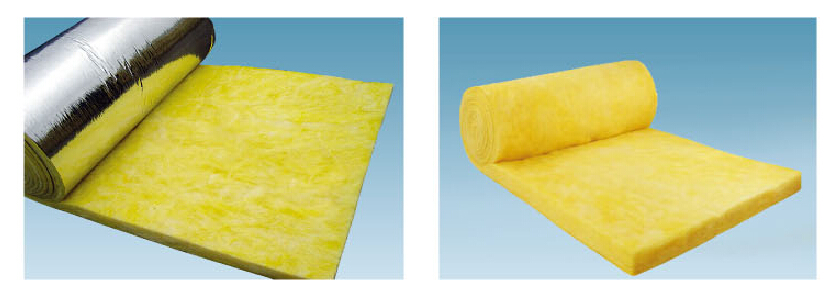
Introduction
The glass wool blanket is applied for largelaying area. Besides the character of thermal insurance, it also has theperformances of shock absorption and acoustical isolation, especially for middleor low frequency sound. It also can cancel the noise and improve workingenvironment.
The glass wool blanket with aluminum foilsurface has good capability of heat radiation protection.
TechnicalData
Item | Unit | Index |
Density | Kg/m3 | 10-32 |
Thickness | mm | 25-150 |
Width | mm | 600-1200 |
Length | mm | 10000-30000 |
Note: Product with special specificationcan be made to order.
Both unfaced and faced felts can beprovided.
Application
This material can be freely cut inconstruction according to the shape required, mainly used in room,noise-canceling system, transportation, refrigerators and household electricappliances for noise canceling.
The blanket with aluminum foil is suitablefor high temperature shops, control room, inner wall of the machine shops, roomseparating and inner liners.
Package
Normal packing: Each roll is wrapped withvacuum plastic bag, and then in PE woven bag.
Special required package like PE BAG and PESHRINKED BAG can be made with additional charge.
Glasswool Pipes
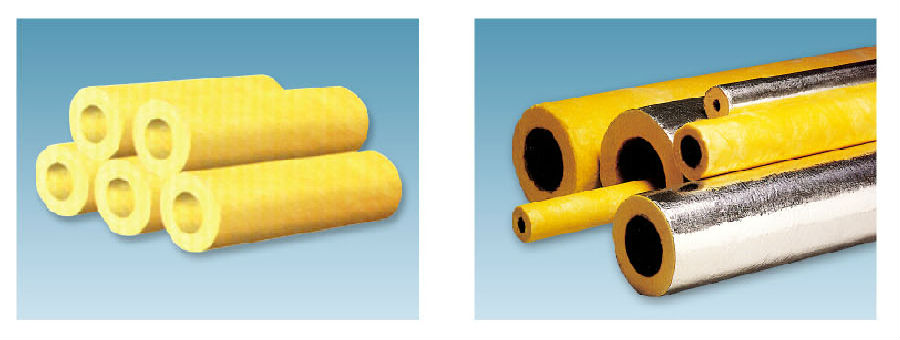
Introduction
As this material has the characters ofwater-proof, anti-corrosion and mildewing-proof, glass wool pipe is good atstopping condensation and freezing of the pipes.
TechnicalData
Item | Unit | Index |
Density | Kg/m3 | 48-96 |
Thickness | mm | 25-90 |
Diameter | mm | 18mm-529mm(3/4 inch to 21 inch) |
Length | mm | 1 000,1 200 |
Note: Product with special specificationcan be made to order.
Both unfaced and faced felts can beprovided.
Application
It is widely used in building, heating powerpipes, air conditioning and refrigerators for thermal insurance, such as hotwater pipes, steam pipes, electric power, petroleum and chemical industries.
Glass wool pipe faced with Alum Foil can beapplied to the surface for preventing moisture and radiation.
Package
Reasonable pieces will be packed withplastic bags or carton box, and then into container.
Glasswool Boards
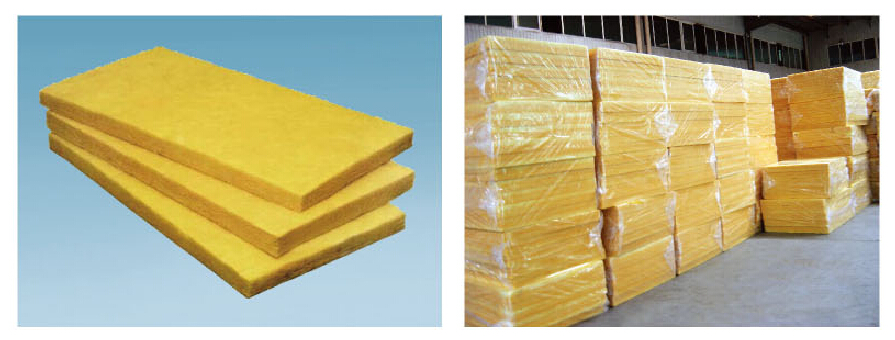
Introduction
Glasswool board is a kind of plate productwith fixed strength after hot-setting of the centrifugal glass wool. It hasexcellent thermal insurance performance in the environment of both high and lowtemperature.
TechnicalData
Item | Unit | Index |
Density | Kg/m3 | 24-96 |
Thickness | mm | 20-100 |
Width | mm | 600-1 200 |
Length | mm | 1 200,2 400 |
Note: Product with special specificationcan be made to order.
Both unfaced and faced felts can beprovided.
Application
It is mainly used for the partition wall inthe high-grade building, such as ceiling, air conduit and inner wall forthermal insurance, machine shops for noise absorption, and metal ceiling forcontrol of moisture.
High density panels with laminated facingcan be used for Air-Conditioning Duct System.
Package
Reasonable pieces will be packed withplastic bags, and then into container.
- Q: What is the heat conductivity coefficient of glass wool ?
- Heat conductivity coefficient of glass wool is less than or equal to 0.04 W / M.K at 120 ℃. You can calculate it at 95 ℃. I am a manufacturer of glass wool.
- Q: These two kinds of glass wool are used as insulation materials, but one keeps 0.3 in specific gravity while the other keeps 0.5 in specific gravity. Which one should be chosen?
- Specific gravity has much to do with quality and thermal conductivity.
- Q: What's the types of glass wool points? do they have the same sound insulation effect?
- Rock wool and glass wool have poor sound insulation effect, and different prices, glass wool is easy for construction.
- Q: What is the difference between quartz wool and glass wool?
- Hello! I'm glad to answer your question! Glass wool is made by natural minerals such as quartz, dolomite, feldspar, limestone coupled with soda ash, borax and other auxiliary materials ... Glass wool is a fine fibrous material through drawing, blowing or swing of external force in melting state. Glass wool is an inorganic fiber. It has the following basic characteristics: ① It has good thermal insulation property at high and low temperatures. ② It is noncombustible without producing harmful gases, so it is designated as "legal non-combustible material" by various countries. ③ It has uniformly elastic restoring force. ④ Its moisture absorption rate is small under humid conditions. ⑤ Its coefficient of linear expansion is small. ⑥ It has low aging rate, able to remain the original performance after long-term use. ⑦ It has good machinability. Asbestos product is produced through the process that thining slate fibers by chemical beam to make them become slurry structure, and then sizing it at high temperatures. This product is characterized by lowest aging, non-degenerating, poisonless and tasteless, light weight and low thermal conductivity, etc. In addition, it is easy to construction, able to be cut freely and packaged based on types without irritating skin and wear and tear in construction and other advantages. Hope it will help you.
- Q: Which thermal insulation materials are the best for air-conditioners? Is it rubber and plastic, PEF or glass wool?
- Rubber and plastic is a better choice for conduits.
- Q: As for glass wool board and rock wool board, which kind of material is better?
- substitutes of rock wool and glass wool, performance index, the glass wool price is relatively high, less manufacturers.
- Q: Specifications and models of glass wool
- Models of glass wool: 32kg / 50mm, 48kg / 50mm, 80kg / 50mm, 96kg / 25mm, 80kg / 25mm
- Q: Which kind of soundproof cotton is the best for decorative gypsum board partition ? Mineral rock wool or glass wool?
- The upstairs answer is wrong. rock wool is made of basalt through melting and spining, rather than asbestos. Asbestos and rock wool are two different things. Please check soundproof walls. From the aspect of soundproof effect, it is better to combine rock wool and glass wool, with the former insulating low frequency and the latter insulating high frequency. Unit weight should be above 80k. In terms of construction, they are similar. Rock wool may be more difficult for construction workers but it is cheaper than glass wool.
- Q: How is the prospects for rock wool board and glass wool board?
- They are very good, but they also cause great pollution. Such problems as how to dispose of abandoned materials and excessive materials and how to recycle these materials are very difficult to deal with.
- Q: What are the differences between rock wool and glass wool?
- Rock wool board has short silk and glass wool has long silk,
Send your message to us
Glass Wool Insulation for Roofing and Wall
- Loading Port:
- Tianjin
- Payment Terms:
- TT OR LC
- Min Order Qty:
- 1000 m²
- Supply Capability:
- 10000 m²/month
OKorder Service Pledge
OKorder Financial Service
Similar products
Hot products
Hot Searches
Related keywords
